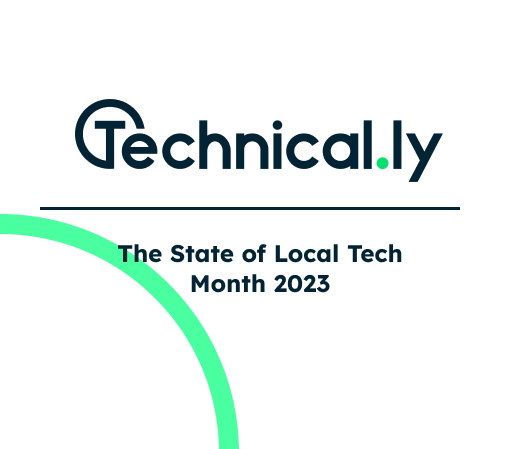It’s been tough, the former digital marketer said. While she’s been sending a lot of applications, all the interviews she’s gotten have come from networking connections.
“I’ve seen it through the bootcamp, which offers career services,” she said during a lunch discussion before the Technical.ly Developers Conference during Philly Tech Week 2023 presented by Comcast. There just doesn’t seem to be a glut of available opportunities, at least for entry-level employees: “They were struggling to get us matchmaking employers, they were struggling to get us interview opportunities, which was part of the promise of the program.”
2023 has been full of mass layoffs in the tech industry, making a field that was known for job security not so secure. What does that mean for those looking for their first tech job right now? What challenges do companies that are hiring face, and what could they be doing better to attract candidates?
Simply put: Early-career tech talent needs help.
How did we get here?
Tim Allen, principal engineer at The Wharton School, said the job gap is still large, meaning there are more tech jobs than qualified people. Everyone he knows in the region who is still hiring is just “hiring smart” — not just because they can.
“A lot of companies during the pandemic hired stupid and acquired stupid,” he said, which led to layoffs after a surge in hiring partly enabled by free-flowing venture capital and a pandemic emphasis on digital transformation. “It’s the dog that caught the car. I think a lot of the companies that are laying people off are ones that hired reckless.”
Martin Snyder, VP of engineering at Pinnacle 21, noted that companies that are still hiring are leaning toward senior engineers rather than early-career talent.
In the past, bigger tech companies would hire technologists right out of college, making it easier for bootcamp graduates to find work at other companies, he said. However, if bigger companies aren’t hiring, it makes the job field much more competitive for everyone.
“It’s much harder to get even the basic opportunities to talk to people because the market is just flooded with lots of people with talent and with promise, but without experience,” Snyder said, “and it’s very hard to distinguish.”
Hiring for retention
Tariq Hook is the cofounder of Wilmington-based tech education nonprofit Code Differently, which aims to help people into their first tech roles. Companies prioritizing the hiring of more experienced technologists over newer talent is a problem, he said, because they end up stealing senior-level pros from each other, without investing in the next generation, which keeps the pool small.
Yet those who don’t see the value of being a technologist’s first employer are also missing out on the potential for long-term retention, he said.
“When you grab somebody at a young age, right, that’s how to get a lifelong person. You start grabbing people from the middle of [their career], of course they’re only going to be there for two or three years. You’re gonna see this turn,” Hook said. He called this form of people-first workplace culture development “a forgotten skill” among many modern tech companies.
The pitfalls of remote work
There’s another culture mismatch can hurt early-career talent: the desire for remote vs. in-person work.
Andrew Gamino-Cheong, CTO and cofounder at Trustible, said senior talent are often the employees who want to work remotely. Newer talent doesn’t get to learn as readily from people with more experience when they don’t physically see them.
Hook believes “we went too far” with the pandemic-prompted cultural shift to remote work. It’s just harder to build a sense of community when you’re not together: “It’s just being in the office sitting around talking to people and having the casual conversations that lead to mental development and diversity of thought,” he said.
Advice for job seekers: Practice your soft skills
Michelle Duncombe, a senior manager of product at Comcast, said anyone looking for a job should know that technical skills are becoming “baseline” and that soft skills will set apart the great candidates. She’s currently hiring, and in search of folks with networking and presentation skills, in additional to strong technical skills.
Accordingly, Hook said, his organization recently rewrote its curriculum to include more soft skills, such as communication and team collaboration.
Those are skills a technologist can carry throughout their career, whether they’re facing their coworkers through a screen or across a desk.
Sarah Huffman is a 2022-2024 corps member for Report for America, an initiative of The Groundtruth Project that pairs young journalists with local newsrooms. This position is supported by the Lenfest Institute for Journalism.
This editorial article is a part of State of Local Tech Month of Technical.ly’s editorial calendar.
Join our growing Slack community
Join 5,000 tech professionals and entrepreneurs in our community Slack today!
Donate to the Journalism Fund
Your support powers our independent journalism. Unlike most business-media outlets, we don’t have a paywall. Instead, we count on your personal and organizational contributions.

National AI safety group and CHIPS for America at risk with latest Trump administration firings

Immigration-focused AI chatbot wins $2,500 from Temple University to go from idea to action

How women can succeed in male-dominated trades like robotics, according to one worker who’s done it



